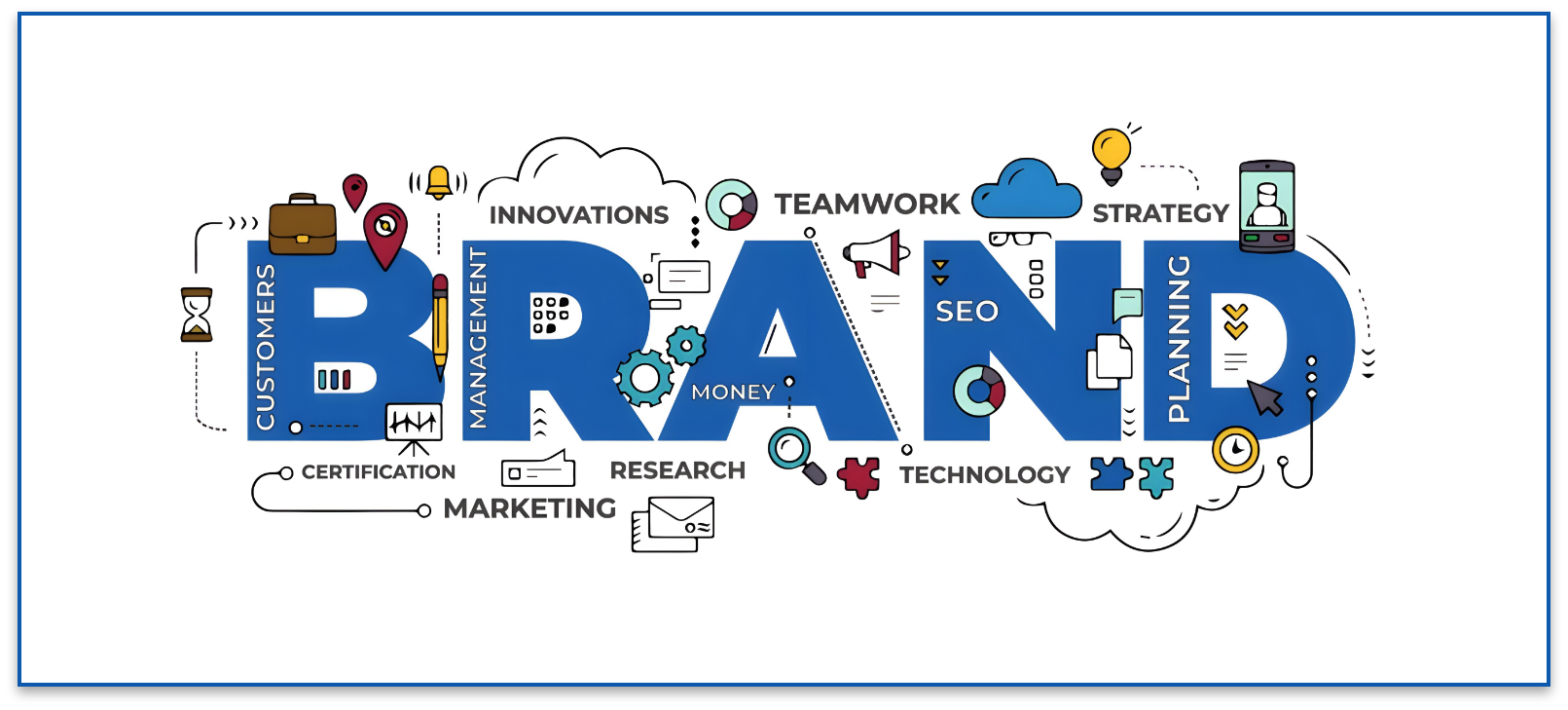Emily specializes in SEO, content marketing, social media strategy, and PPC campaigns. She is particularly skilled at analyzing market trends and adapting strategies to stay ahead of the curve.
What’s a High Trust Industry (HTI)?
These are industries where public trust isn’t just important – it’s absolutely essential.
We’re talking about businesses that directly impact crucial aspects of a person’s life, like their happiness, health, financial stability, or safety.
Think addiction treatment centers, LASIK and dental clinics, weight-loss services, or financial planning firms.
Businesses that fall under this category have a unique digital marketing landscape.
Now, here’s where it gets interesting for these businesses.
There’s a constant, high demand for information related to the services they provide.
This means businesses in the HTI sector have enormous potential to generate both web traffic and revenue.
People are actively searching for reliable, trustworthy information in these areas, and that’s a big opportunity for businesses to connect with their audience.
But, and this is a big ‘but,’ businesses in these high-trust categories face intense scrutiny from search engines like Google.
Why? Because the stakes are high.
The information and services they offer can significantly influence someone’s financial, physical, or psychological well-being.
So, search engines hold these businesses to a much higher standard.
It’s not just about providing information; it’s about providing accurate, reliable, and helpful information that positively impacts people’s lives.
Navigating this landscape requires a nuanced, carefully crafted SEO strategy.
It’s about striking the right balance between reaching your audience effectively and maintaining the high level of trust and credibility that your industry demands.
This is where the true art of SEO comes into play – it’s not just about playing the game; it’s about setting a gold standard in your industry.
Let’s unpack the critical role of E-E-A-T in your website’s SEO strategy.

E-E-A-T is a set of criteria used by Google to determine the credibility and reliability of a website.
At first, it was just E-A-T.
But Google’s update in December 2022 added an extra ‘E’ for ‘Experience’ to the existing E-A-T (Expertise, Authoritativeness, and Trustworthiness) criteria.
This change isn’t just a minor tweak; it’s a significant expansion that reflects the evolving landscape of online content.
Let’s break it down:
This new addition is all about showcasing hands-on knowledge.
We’re talking about content that reflects first-hand experiences, practical reviews, or a deep, nuanced understanding of a topic.
And here’s the good news: this experience doesn’t always require formal qualifications like a degree.
It’s about demonstrating that you really know your stuff, whether it’s through life experience or professional practice.
The author must be well-versed in their subject, especially when the content could impact someone’s health or finances.
For high-stakes topics like investment advice or medical information, the content should be crafted or reviewed by someone with the relevant credentials.
It’s all about backing up your words with solid expertise.
Your website should be a go-to resource in its niche.
But being an authority isn’t just about having a standout article or two.
It’s about covering your topic comprehensively and from an expert’s perspective.
Depth, detail, and a demonstrated grasp of your subject matter are what set an authoritative site apart.
This is where honesty and transparency are key.
Your website should be a safe and reliable place for users.
From secure handling of customer data to clear, honest content and design that prioritizes user experience – all these elements contribute to trustworthiness.
Transparency about your authors, team, and qualifications is vital to establishing this trust.
When it comes to SEO, E-E-A-T is a big deal.
Google uses these criteria to gauge the quality of your site and its content.
High E-E-A-T scores can be a golden ticket to better rankings in search results.
Low scores, on the other hand, may cause your site to struggle to build a name for itself.
It’s also worth noting that Google employs human evaluators, known as ‘Search Quality Raters,’ to give websites the once-over.
These evaluators manually review sites to assess credibility and reliability.
So, even if your site ticks all the E-E-A-T boxes, it still needs to pass the human test for quality and reputation.
In essence, focusing on E-E-A-T isn’t just about playing nice with Google’s algorithms; it’s about building a site that resonates with real people – both your audience and those behind-the-scenes evaluators.
By weaving experience, expertise, authoritativeness, and trustworthiness into the fabric of your website, you’re setting yourself up for success in the competitive world of SEO.
Let’s rewind to 2018, to a pivotal moment in SEO history – the Medic Update.
This was a game-changer, especially for HTI websites, particularly those in the health and wellness sector.
The Medic Update was Google’s way of upping the ante on the quality of information in these critical niches, aiming to sideline websites that offered low-quality or unreliable content.
For many in the health and wellness space, the aftermath of this update was eye-opening.
We saw significant drops in traffic and search visibility for numerous sites.
It was a loud and clear message to the industry about the non-negotiable need to provide accurate, trustworthy information.
This is where E-E-A-T really comes into play.
Sites that had their E-E-A-T ducks in a row – showcasing experience, expertise, authoritativeness, and trustworthiness – navigated the update much more smoothly.
In contrast, those with lower E-E-A-T scores felt the pinch.
The Medic Update was more than just an algorithm change; it was a stark reminder of the ever-evolving nature of SEO.
Staying informed and agile, constantly aligning with industry developments and best practices, is crucial.
It highlighted that what works today might not work tomorrow, and adapting your strategy to these shifts is key to staying on top of your SEO game.
So, let’s take this as a lesson learned – an opportunity to focus on building a website that not only ranks well but also stands as a beacon of quality and trust in your industry.
When it comes to High Trust Industry content, particularly in the health and wellness arena, there’s a fine line between informative content and the spread of misinformation.
The stakes are high: misleading information can not only erode your audience’s trust but also harm your search engine rankings and, ultimately, your business’s reputation.
The key to navigating this tricky landscape is to ground your content in expertise and evidence-based information.
Why? Because in the world of HTI, facts matter.
Leveraging research and data is crucial in separating fact from fiction, ensuring your audience receives accurate, reliable information.
This not only builds trust and credibility with your readers but also aligns with Google’s efforts to prioritize evidence-based information in its search results.
In other words, quality, fact-checked content gets a thumbs-up from Google, enhancing your chances of ranking well.

Creating impactful and trustworthy HTI content involves a few critical steps:
Remember, in the HTI space, your content is more than just words on a page; it’s a reflection of your expertise and commitment to accuracy.
By focusing on these strategies, you’re not just sharing information; you’re building a trustworthy and authoritative online presence that resonates with both your audience and search engines.
Let’s dive into the art of building a positive brand reputation – a vital component for achieving trust with your audience and boosting search engine rankings.

Crafting a reputable brand isn’t just a nicety; it’s a necessity in today’s digital landscape.
But how exactly do you elevate your brand’s reputation?
Openly share information about your company and the brains behind it.
People love to know who they’re doing business with.
This transparency bridges the gap between you and your audience, fostering trust and authenticity.
Your audience’s voice is incredibly powerful.
Be proactive on social media and other platforms where your customers are active.
Engage with their reviews, feedback, and discussions.
A responsive and caring brand image goes a long way in cementing a positive reputation.
It shows you’re not just a faceless entity; you’re a brand that listens, cares, and values its customers.
These are like digital nods of approval from other reputable sites in your niche.
Focus on natural link-building strategies, including PR efforts and raising brand awareness.
Authoritative backlinks not only enhance your website’s credibility but also signal to search engines that your site is a trusted resource, thereby improving your SEO.
A consistent brand message and aesthetic across all platforms signal high quality and professionalism.
It’s about creating a cohesive experience that resonates with your audience, compelling them to engage more and convert.
Google’s goal is to guide users to their desired information or services efficiently.
If your website nails this by providing a consistent, user-friendly experience, you’re not just winning over customers; you’re also winning in search rankings.
Remember, in the world of SEO, a positive brand reputation isn’t just a cherry on top – it’s the foundation of your digital success.
Navigating High Trust Industries can indeed be challenging, but let me tell you, it’s also ripe with opportunities for those ready to roll up their sleeves and make a real impact.
As we step into this arena together, our goal is to not just stand out but to build a foundation of trust with your target audience that’s rock solid.
The secret sauce boils down to a few key ingredients:
Thriving in HTI sectors is about combining deep industry knowledge with cutting-edge SEO strategies and a relentless focus on quality and trust.
With these tools in our arsenal, we can unlock the full potential of your business and pave the way for future success.
Let’s embark on this journey together and transform challenges into opportunities.